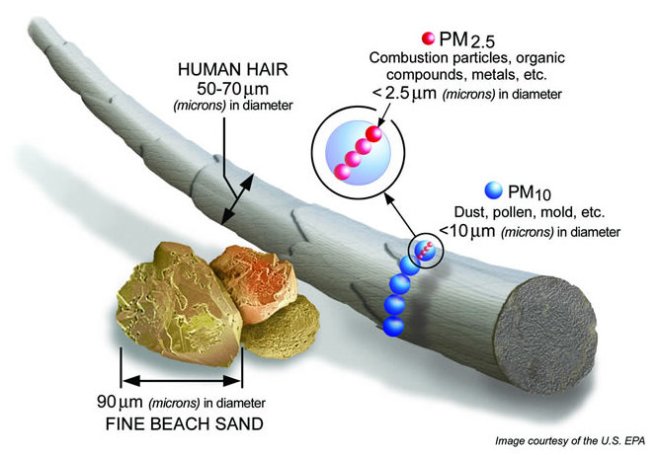Update: A write-up of this event which took place on 16-17th February 2019 is available on this page.
How much do you care about the quality of the air you breathe as you walk to work or university, take the kids to school, cycle or jog, or open your bedroom window?
How good is the air you are breathing? How do you know? What are the levels of particulates (PM2.5 or PM10) and why is this important?

When do these levels go up or down? What does that mean?
Who warns you? Where do they get their data, and how good is it?
Where do you get information, or alerts that you can trust?
We aim to sort this in Aberdeen
Partnering with community groups, Aberdeen University and 57 North Hacklab, we are working on a longterm project to build and deploy community-built, and hosted, sensors for PM2.5 and PM10. We aim to have fifty of these in place in the next few months, across Aberdeen. You can see some early ones in place and generating data here.
The first significant milestone of this will be the community workshop we are holding on 16-17 February 2019. If you want to be part of it, you can get a ticket here. But, be quick; they are going quickly.
Weekend activities
There are loads of things you can do if you attend.
Sensor Building
For a small cost, you can come along and build your own sensor with someone to help you, and take it home to plug into your home wifi. It will then contribute data for your part of the city.
But we will be doing much more than that.
Working with the data
If you have experience in data science or data analysis, or if you want to work with those who do, there are loads of options to work with the data from existing and future sensors.
These include
- Allow historical reading to be analysed against the official government sensors for comparison
- Use the data; wind speed, humidity… to build live maps of readings to identify sources of emissions.
- Compensate readings from sensors against factors which affect pollution levels to attempt to understand the emissions of pollutants in a given area.
- Build predictive models of future pollution
- Fix a minor issue with the existing data Collected Data (see https://github.com/opendata-stuttgart/madavi-api/issues/8 )
- Build an API for the access of the Luftdaten sensor data to allow querying of the sensor data
Software development
If you are a software developer or studying to be one, you could
- Create alerts systems to warn of anticipated spikes in pollutants, perhaps using Twitter, or email.
- Add to the code for the Luftdaten sensors to allow connection over LoRaWAN interface.
- Create LoRaWAN server code to allow sensors to feed up to the Luftdaten website.
- Security testing of the IoT Code used by the Luftdaten sensors.
Community Groups / Educators / Activists / Journalists
You don’t have to be a techie! If you are a concerned citizen, and community activist, a teacher, or a journalist there is so much you could do. For example:
- How can you understand the data?
- Identify how this could assist with local issues, campaigns, educational activities.
- Help us capture the weekend by blogging, or creating digital content
Even if you just want to be part of the buzz and keep the coffees and teas flowing, that is a great contribution.
See you there!
Ian, Bruce, Andrew and Steve
Header image by Jaroslav Devia on Unsplash




